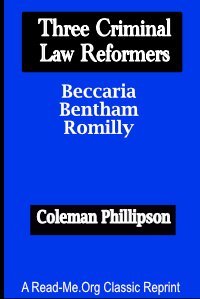By Colette Ashton
Strengthening existing institutions, prioritising prevention and engaging the private sector are needed to end corruption.
This report analyses South Africa’s anti-corruption institutions in relation to international good practice. It highlights problems with their functional independence and organisational culture. It identifies a serious gap in the area of prevention. Among the recommendations are that South Africa undertake feasible, incremental improvements to existing institutions and engage the private sector to help prevent and detect corruption.
Key findings There is insufficient empirical research on corruption in South Africa to inform context sensitive policy reform. Anti-corruption institutions are governed by a parallel informal system of social norms held in place by incentives such as promotion and disincentives such as bullying. This organisational culture prioritises obedience to authority over ethics, eroding integrity. A culture of mistrust and competition exists between law enforcement agencies, hampering collaboration. Feasible, incremental reforms of anti-corruption institutions are needed in the short term, focusing on organisational culture. Recommendations Strengthen existing agencies Amend the National Prosecuting Authority Act so that: the National Director of Public Prosecutions (NDPP) is the accounting officer; the budget is allocated by Parliament; there are merit-based appointment processes and security of tenure for senior leaders; and the NDPP has control over human resources. Develop context-sensitive prosecutorial prioritisation policy that focuses on the criteria of redress for economic harm and is mindful of the need for political stability. Revise performance targets of law enforcement agencies to incentivise cooperation, not competition. Build cultures of integrity, trust and cooperation in and among anti-corruption agencies. Prioritise prevention Work towards an independent anti-corruption prevention agency. Urgently provide the Public Administration Ethics Integrity and Disciplinary Technical Assistance Unit in the Department of Planning, Monitoring and Evaluation with increased funding and independence. 2 The NPA should be given control over its own budget and human resources, which are currently controlled by the Department of Justice and Constitutional Development. Effective anti-corruption agencies in developing countries may trigger political instability. Political stability is a precondition for economic growth, which in the long term creates conditions for more effective anti-corruption institutions. Equitable economic development is a precondition for the transformation of more economically harmful types of corruption, e.g. plunder, into less harmful types, e.g. lobbying. The private sector is a key partner for government in the prevention and detection of corruption. Prioritise integrity in government by promoting ethical employees. Prioritise corruption prevention in the South African Police Service. Change the incentive structure for the private sector Introduce a statute providing for non-trial resolutions of corporate corruption cases to incentivise companies to self-police corruption. Develop capacity in the Companies and Intellectual Property Commission to support companies to develop effective anti corruption compliance programmes. Partner with the private sector to run collective action programmes in key sectors such as health, construction and shipping. Research Conduct a risk analysis for a proposed Chapter 9 anti-corruption super-agency with investigative and prosecutorial powers. Conduct research into a two-track criminal and administrative anti-corruption enforcement system. Conduct more empirical, sector-specific research into corruption
Pretoria: Institute for Security Studies, 2024. 28p,







